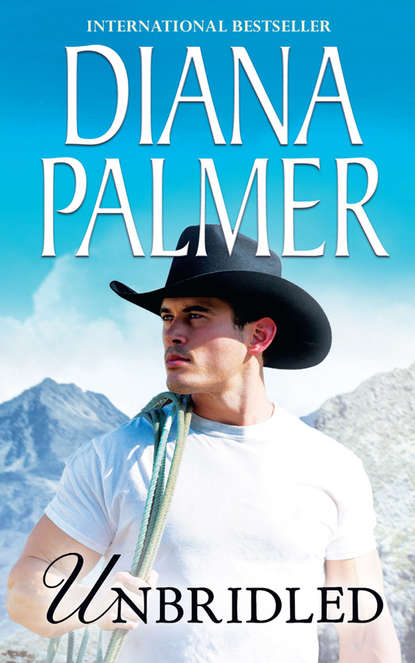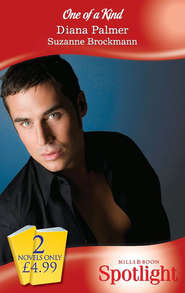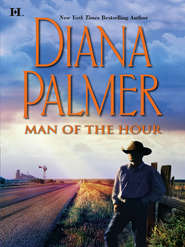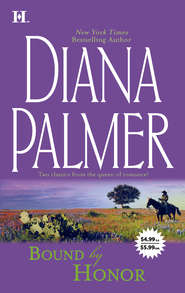По всем вопросам обращайтесь на: info@litportal.ru
(©) 2003-2024.
✖
Unbridled
Настройки чтения
Размер шрифта
Высота строк
Поля
Her face was sad. “Yes. We lost a child a few days ago. I cried and cried. We’re not supposed to get involved with patients, but she was so sweet...” She swallowed, hard, and fought tears.
He never touched people. Not even his dad. But he reached out a hand and grasped hers in it, tight. “My mother always said that God picked all sorts of people for the bouquets He made, little ones and big ones alike. She said...” he tried to remember “...that we have to accept that the days of our lives are numbered, and that we have to make the best of every single one we have.”
“Your mother must be a very special person,” she said, returning the pressure of his hand for a second before she released it to pick up her coat and purse.
“She was,” Tonio said with a sad smile. “She was a nurse, too, but she didn’t work here.”
She hesitated, seeing the sorrow in his big, brown eyes. “I’m so sorry,” Sunny replied. “I know what it is, to lose a mother.” Her brown eyes were sadder than his. “I lost my whole family.”
He grimaced. “I’m sorry, too.”
“Life compensates us, my mother used to say. She was a good person, too.” She glanced at her watch. “I’d better get moving before my new supervisor hangs me out the window from a sheet. Nice to have met you, Tonio. Maybe I’ll see you again.”
“Same here. And I hope I see you again.”
She grinned. “Bye.”
“Bye.”
He watched her go and felt as if the sun had just gone down. He’d never met anybody like her. How odd, to have a stranger come into your life and feel like part of your family.
He wondered which one of the wolves had killed the Serpiente. He wouldn’t have put it past Rado. He was grateful to Sunny for protecting him, but troubled that Rado had sworn revenge. He hoped his new friend wasn’t going to get hurt because of him. But, then, Rado often threatened people. It had been nice, having somebody stand up for him. She could see that he had Hispanic blood, too, and that hadn’t stopped her from defending him. He liked that. She wasn’t beautiful, but he thought she was pretty, with her long blond hair and big brown eyes and sweet smile. He really hoped that he’d see her again.
He sat back and sipped his hot chocolate, forcing Rado and the gang to the back of his mind.
* * *
The autopsy was routine, and John had grown used to them, after a fashion. But he never quite got used to seeing the damage one human being could do to another. This young boy, nude on the table, with cobra head tattoos all over him, had a mother and father somewhere. How would he feel, if that was his Tonio on that table? It made it far more personal than he liked to admit.
The attending coroner was speaking into a microphone, detailing the damage and extracting material that might help point to the perpetrator. John was pretty sure that it was one of the wolves, but he had to have evidence to find out which one had killed the boy.
Besides John, there was a representative from the San Antonio Police Department’s violent crime unit, a detective named Bronson. He was about John’s age and had apparently seen his own share of autopsies. He didn’t seem to be overly emotional, like the brand-new detective who’d shown up at the autopsy and had to absent himself to throw up.
John looked over the body at the detective with that thought in his head and a faintly quizzical look in his black eyes.
The detective glowered at him. “I don’t throw up at autopsies.”
John smothered a laugh, turning it into a cough.
The coroner glanced up, rolled his eyes and went back to the body.
“Cavitation,” he murmured, sighing. “Catastrophic damage to the heart.” He looked up, angry. “Just a kid, and they killed him over drug territory. This is unspeakably sick.”
“Tell me about it,” John said quietly. “He wasn’t even into his teens, by the look of him.”
“Your boy’s about this age, isn’t he, Ruiz?” the coroner asked gently.
John grimaced. “Tonio’s eleven,” he agreed. He scowled. “These autopsies get harder when you’ve got a kid the same age as the victim.”
“That’s why we do what we do,” the detective interjected. “To keep more kids from dying like this.”
John smiled at him. “Good point.”
Just as he spoke, the coroner extracted a bullet. “Exhibit number one,” he said proudly as he dropped it into a dish.
“Hopefully, it has something to connect it to the killer,” John agreed, studying it. “Not too much damage, that will help. Looks like a .22 slug.”
“Damned Saturday Night Specials,” the detective muttered. “More dangerous than a higher caliber gun, because the bullets fragment and cause more damage.”
“Exactly,” John agreed.
“Well, if the bullet kills you, the caliber isn’t all that relevant, now, is it?” the coroner asked them.
They conceded the point.
* * *
John was home late. He searched in the fridge for sandwich meat and got mustard and bread down from the cabinet.
Tonio poked his head out the door of his room. “You home for good?”
“Well, for the night, I hope,” John said. “You hungry?”
Tonio grinned. “Always. What you got?”
“Bologna and mustard.”
“Okay.”
They sat down at the table to eat.
Tonio was still happy about his new friend, although it was a secret he didn’t want to share with his father.
He noticed the hard lines in his dad’s face. Harder than usual. “Something bothering you?” he asked. It was unusual, because he didn’t notice his father much these days.
John nodded. “I had to attend an autopsy. A gang shooting victim. The kid wasn’t even into his teens.”
Tonio pretended ignorance. “A gang victim?”
John nodded, not paying much attention to Tonio’s expression. It was a shame.
“Los Lobitos?” Tonio probed.
“No,” John replied after a bite of sandwich and a sip of black coffee. “One of Los Serpientes.”
“Los Lobitos kill him, you think?” Tonio asked.
He looked up, black eyes narrowed. “You aren’t hanging around with that gang?” he asked suspiciously.











